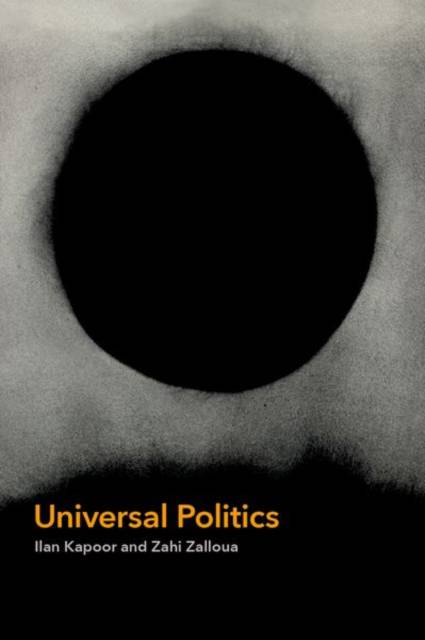
- Afhalen na 1 uur in een winkel met voorraad
- Gratis thuislevering in België vanaf € 30
- Ruim aanbod met 7 miljoen producten
- Afhalen na 1 uur in een winkel met voorraad
- Gratis thuislevering in België vanaf € 30
- Ruim aanbod met 7 miljoen producten
Zoeken
Omschrijving
In Universal Politics, Ilan Kapoor and Zahi Zalloua argue that, in the face of the relentless advance of global capitalism, a universal politics is needed today more than ever. But rather than appealing to the narrow particularism of identity politics, the authors argue for a negative universality rooted in social antagonism (i.e., shared experiences of exploitation and marginalization). This conception of shared struggle avoids the trap of a neocolonial universalism, while foregrounding the politics of the systematically dispossessed and excluded. The book examines what a universal politics might look like in the context of key current global sites of struggle, including climate change, workers' struggles, the Palestinian question, the refugee crisis, Black Lives Matter, #MeToo, Political Islam, the Bolivian state under Morales, the European Union, and COVID-19. It also discusses the main political ingredients, gaps, and limitations of a universal politics.
Specificaties
Betrokkenen
- Auteur(s):
- Uitgeverij:
Inhoud
- Aantal bladzijden:
- 264
- Taal:
- Engels
Eigenschappen
- Productcode (EAN):
- 9780197607619
- Verschijningsdatum:
- 5/10/2021
- Uitvoering:
- Hardcover
- Formaat:
- Genaaid
- Afmetingen:
- 157 mm x 226 mm
- Gewicht:
- 521 g

Alleen bij Standaard Boekhandel
+ 148 punten op je klantenkaart van Standaard Boekhandel
Beoordelingen
We publiceren alleen reviews die voldoen aan de voorwaarden voor reviews. Bekijk onze voorwaarden voor reviews.











